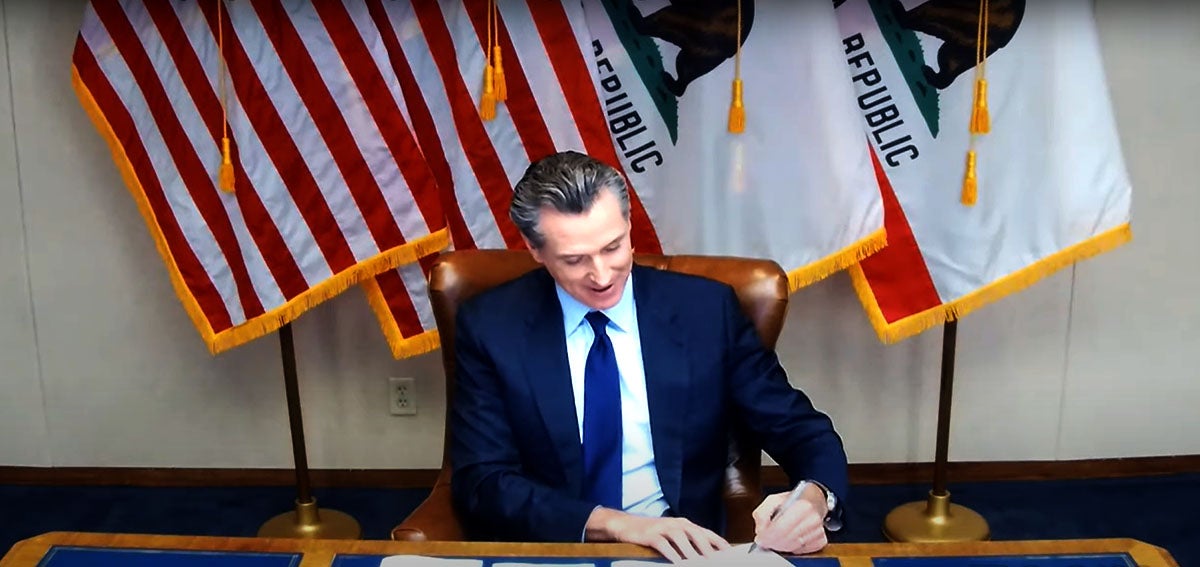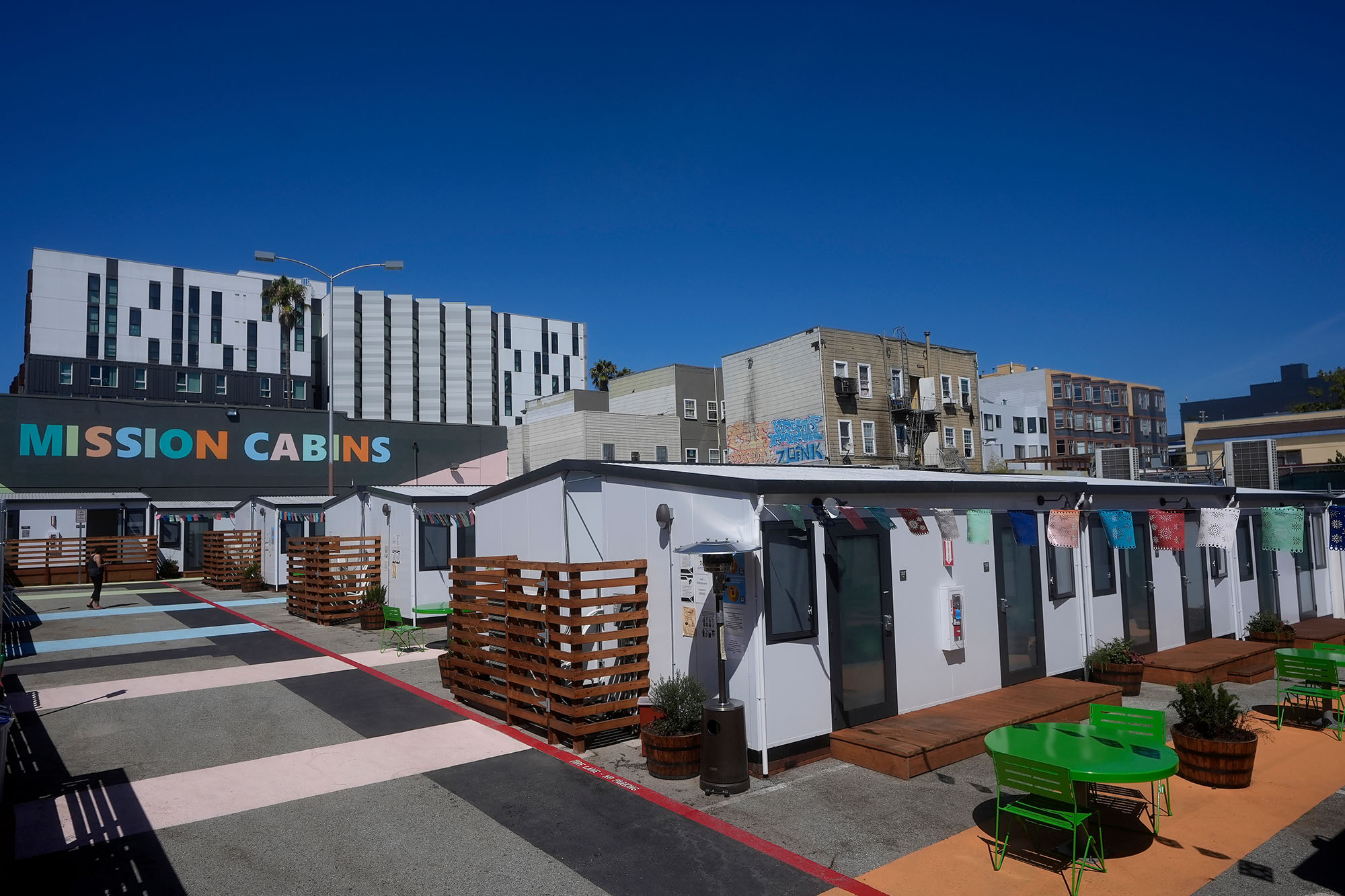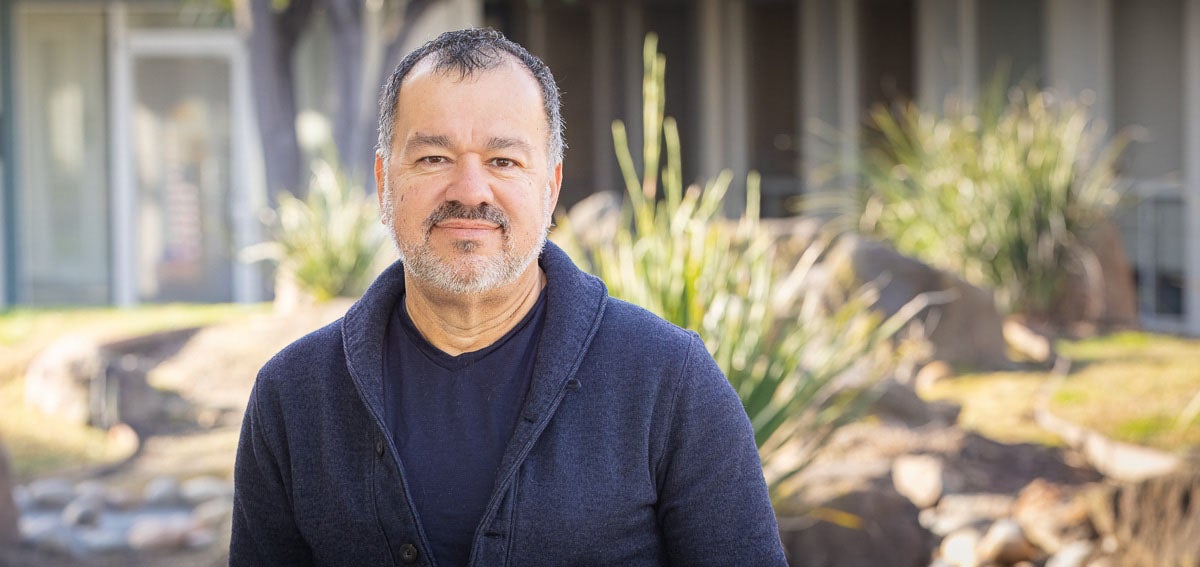
Governor Gavin Newsom has signed into law four bills intended to improve Californians’ access to mental health and substance use disorder services.
“I pledged to put these critical services within reach of more Californians,” Newsom said in a September 25 statement. “The bills I am signing today will help Californians access the behavioral health services they need to recover.”

The coronavirus pandemic and the resulting economic downturn have persuaded Americans of the importance of behavioral health care services. In the last half of August, a National Council for Behavioral Health poll found that the gap has widened considerably between demand for mental health and addiction treatment services and the financial viability of organizations that provide them. Over half of NCBH member organizations reported that in the three months before the survey, more Americans sought their services even as these providers lost, on average, 23% of their annual revenue.
A different survey, conducted in the last week of June, showed that one in four people age 18 to 24 seriously considered suicide in the past 30 days. That troubling finding was published in the Morbidity and Mortality Weekly Report of the US Centers for Disease Control and Prevention.
In California, where the wildfire season got off to an early and destructive start, the converging crises are expected to worsen residents’ mental health. “We are very concerned about the layering of multiple stresses on the people of California,” Jim Kooler, DrPH, assistant deputy director of behavioral health in the California Department of Health Care Services, told Jocelyn Wiener in CalMatters.
Newsom, who signaled his commitment to mental health during his campaign for governor, became visibly emotional at the end of the September 25 virtual bill-signing ceremony. “Thanks for leading, thanks for making a difference,” he said to the legislators and mental health advocates on the video call. “This is making a difference in real people’s lives.”
Here are the four behavioral health bills that the governor approved:
Strengthening California’s Mental Health Parity Law
Gaps in California’s mental health parity law will be bridged under SB 855 by State Senator Scott Wiener (D-San Francisco). “Current state law requires health plans to cover medically necessary treatment of just nine serious mental illnesses,” Jocelyn Wiener reported in an article about SB 855.
Mental health parity laws “have existed in both state and federal law for years, but insurers have used a complex determination of ‘medical necessity’ to deny care” for mental health issues and substance use disorders, Sigrid Bathen wrote in Capitol Weekly. (A recently published CHCF paper by researchers at Georgetown University’s Center on Health Insurance Reforms assessed California’s progress in enforcing the 2008 federal Mental Health Parity and Addiction Equity Act.)
The new state law requires commercial health plans and insurers outside of Medi-Cal (which is regulated by different standards) to provide full coverage for treatment of all mental health conditions and substance use disorders. This includes treatments for post-traumatic stress disorder, generalized anxiety disorder, and opioid use disorder, Sophia Bollag wrote in the Sacramento Bee. The new law also establishes specific standards for what constitutes medically necessary treatment and criteria for the use of clinical guidelines.
Creating a Certification Process for Peer Support Specialists
Under SB 803 by State Senator Jim Beall (D-San Jose), California will create a system to certify peer support specialists, define their roles, and help to scale up the Medi-Cal workforce.
In 2019, CHCF’s Lisa Aliferis visited Washington State to learn about its innovative statewide peer support program. A certified peer support specialist “identifies as having a significant life-altering mental health [or substance use] challenge and has been in recovery for at least a year,” Aliferis was told by Patti Marshall, the peer support program administrator for the Washington Health Care Authority’s behavioral health and recovery division.
Last year, California had not adopted a similar program — even though the US Centers for Medicare & Medicaid Services issued Medicaid reimbursement guidelines for peer providers in 2007. Now, research has shown that peer support for those with co-occurring mental health and substance use diagnoses prevents rehospitalizations and facilitates their ability to live in the community. “When we say [peer support] saves lives, it’s not hyperbole,” Michelle Cabrera, executive director of the County Behavioral Health Directors Association of California, told Jocelyn Wiener in an article about peer support specialists. “It really is a linchpin in moving people [with mental health and substance use disorder issues] into recovery and stabilizing them long-term.”
Expanding Community Paramedicine
Community paramedicine is a locally designed, community-based, collaborative model of care that leverages the skills of paramedics and emergency medical services (EMS) systems to take advantage of collaborations between EMS and other health care and social service providers. Among other expanded roles, community paramedics are trained to handle behavioral health needs and, depending on the locally designed program, can transport intoxicated patients to sobering centers or mental health treatment, and help frequent 911 callers to obtain behavioral health, medical, housing, and social services. All of these protocols take pressure off hospital emergency departments that traditionally have been the only permitted destinations for patients cared for by EMS agencies.
In 2015, California began testing the model of care through 13 community paramedicine pilot projects across the state. An external evaluation conducted by the Healthforce Center at UCSF found that “community paramedics are collaborating successfully with physicians, nurses, behavioral health professionals, social workers, and outreach workers to fill gaps in the health and social services safety net.”
AB 1544 by Assemblymember Mike Gipson (D-Carson) will expand the pilot projects by authorizing local EMS agencies to develop alternative destination programs.
Learn how community paramedics in San Francisco and San Diego have been deployed by their local jurisdictions to help people experiencing homelessness during the pandemic.
Making Substance Use Disorder Treatment More Accessible
One-third of adults who receive county services for serious mental illnesses have a co-occurring substance or alcohol use disorder, according to Assemblymember Sharon Quirk-Silva (D-Fullerton). She authored AB 2265, which will authorize counties to use Mental Health Services Act (MHSA) funds — historically limited to mental health services — to treat Californians with co-occurring mental health and substance use disorders.
By removing barriers to using MHSA-funded services for such conditions, AB 2265 will “[increase] access to substance use disorder treatment, [improve] care coordination, and [lead] to a more integrated behavioral health care system,” according to the governor’s office.
If you need help coping with stress, check out the CalHOPE website, which has mental health tools for parents and kids. (CHCF is a funder of the website.) Email me.
Authors & Contributors






